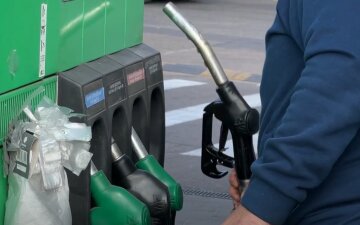At the beginning of 2025, Ukrainians were greeted with updated fuel prices.
Subscribe to our Viber: news, humor, and entertainment!
SubscribeDiesel fuel increased by 9 kopecks (to 52.75 UAH/l), gasoline A-95 gained a symbolic kopeck (55.55 UAH/l), while premium grades remained unchanged, reports the Ministry of Finance. Meanwhile, automotive gas slightly decreased in price, dropping by 3 kopecks – it now costs 35.41 UAH/l.
As early as autumn 2024, Ukrainian drivers noticed a slight decline in fuel prices due to significant stockpiles among sellers. However, this short-term trend has already come to an end. Starting from September 1, fuel excise taxes were raised, and this is just the beginning. Experts predict that throughout 2025, prices at gas stations will be "biting."

The increase in excise taxes has already added 1.50 UAH per liter to gasoline prices, 1.95 UAH to diesel, and a hefty 5.8 UAH to autogas. This has significantly impacted motorists' wallets. At the same time, prices are influenced by the rapid depreciation of the hryvnia: in 2024, the dollar exchange rate rose by 10.7% and reached 42 UAH.
Popular articles now Ukrainians will forget about cheap internet: new tariffs announced Drug addicts, large families, and the sick: the military took a hard stance against the TCC "Surprise" that could hit wallets: pensioners may face cuts to an important benefit Pension indexing in 2025: how payments may change and who will be left out of the increases Show moreConsidering the import of almost all fuel, Ukrainians are paying not only for oil but also for currency risk. If this trend continues, fuel prices will keep rising in 2025.
In 2024, global oil prices fell from 77 to 74 dollars per barrel. But even this did not alleviate the situation in Ukraine. The high dollar exchange rate and increased taxes are eating into the potential benefits for consumers.
The National Bank of Ukraine predicts that fuel prices will rise by more than 9% by the end of 2024. And in 2025, this trend will continue due to:
- gradual depletion of fuel reserves;
- the effect of increased excise taxes;
- depreciation of the hryvnia.